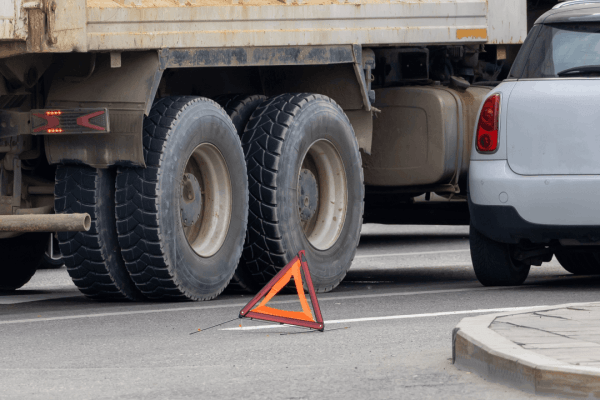
What Not to Say to Insurance After an Accident? Protection Guide
Critical Mistakes: What Not to Say to Insurance After an Accident
Understanding what not to say to insurance after an accident can protect your claim and prevent costly mistakes that damage your compensation potential. Insurance adjusters are trained professionals who use specific tactics to minimize payouts and gather information that benefits their company rather than accident victims. This guide outlines dangerous statements that can harm your claim and provides strategies for safe communication with insurance representatives.
Harmful Admissions: Statements That Destroy Your Claim Value
The most important rule about what not to say to insurance after an accident is never admit fault or responsibility. Phrases like “I’m sorry,” “I didn’t see them,” or “I was probably going too fast” can be interpreted as fault admissions that destroy your claim. Even polite apologies can be twisted into legal liability admissions.
Avoid speculating about accident causes or discussing factors you didn’t directly observe. Statements like “I think the other driver ran the red light” or “maybe the road was slippery” provide adjusters with ammunition to dispute your version of events. Stick to facts you personally witnessed without adding opinions or assumptions.
Financial Pressure Statements
Avoid mentioning financial difficulties, urgent bills, or pressure to settle quickly. These admissions signal desperation that adjusters exploit to offer lowball settlements.
Settlement Acceptance Language
Never say you’ll “accept whatever they offer” or agree to settle without reviewing all options. These statements can be binding and prevent future negotiations.
Strategic Silence: Information to Keep Confidential
When considering what not to say to insurance after an accident, remember that adjusters often ask leading questions designed to gather damaging information. Don’t provide detailed accident descriptions beyond basic facts like time, location, and vehicles involved. Comprehensive accident analysis should be left to investigators and attorneys.
Refuse to provide recorded statements without legal representation. Adjusters claim recordings are “routine procedures,” but these statements can be edited, taken out of context, or used against you in court. Most states don’t require recorded statements, despite adjuster claims otherwise.
The National Association of Insurance Commissioners (NAIC) requires fair claim handling practices, but adjusters often push boundaries to benefit their companies. The Federal Trade Commission (FTC) monitors insurance advertising practices, while state insurance commissioners regulate claim handling procedures in each jurisdiction.
Documentation Traps: Avoiding Paperwork Pitfalls
Understanding what not to say to insurance after an accident extends to written communications and signed documents. Never sign medical record release forms that provide unlimited access to your entire medical history. These broad releases allow adjusters to search for pre-existing conditions or unrelated medical issues to dispute your claim.
Avoid giving specific dollar amounts for lost wages, medical expenses, or property damage without complete documentation. Preliminary estimates often undervalue actual costs, and adjusters use these figures as settlement ceilings rather than starting points for negotiations.
Communication Boundaries: Protecting Your Legal Rights
Smart strategies for what not to say to insurance after an accident include limiting communication frequency and scope. Refer all complex questions to your attorney and avoid discussing case strategy, legal advice, or settlement expectations with adjusters.
Don’t provide social media passwords or discuss your online activity. Adjusters increasingly monitor social media for evidence that contradicts injury claims, such as photos showing physical activity that disputes disability claims.
Professional Protection: Safeguarding Your Accident Claim
Mastering what not to say to insurance after an accident requires understanding adjuster tactics and maintaining communication boundaries that protect your interests. Insurance companies profit by minimizing claim payouts, making every conversation a potential threat to your compensation.
Expert Guidance: Securing Professional Claim Protection
Remember that knowing what not to say to insurance after an accident is just one aspect of protecting your claim value and legal rights. Professional representation ensures you avoid costly communication mistakes while maximizing your compensation potential.
Visit our trucking accident website for specialized guidance on insurance communication strategies and claim protection. Expert legal counsel can handle adjuster communications while you focus on recovery and rebuilding your life.
Frequently Asked Questions
1. Should I give a recorded statement to the insurance company?
You’re generally not required to provide recorded statements and should decline without attorney representation present.
2. Can I say "I'm sorry" after an accident?
Avoid apologies as they can be interpreted as fault admissions that damage your claim, even if meant as expressions of sympathy.
3. What if the adjuster asks about my medical history?
Limit medical discussions to injuries directly related to the accident and avoid signing broad medical release forms.
4. Should I accept the first settlement offer?
Never accept initial offers without understanding your injury’s full extent and consulting with legal counsel about fair compensation.
5. Can I discuss the accident on social media?
Avoid posting about your accident, injuries, or case on social media as adjusters monitor these platforms for damaging evidence.
Key Takeaways
- Never admit fault, apologize, or speculate about accident causes when speaking with insurance adjusters
- Avoid giving recorded statements or signing broad medical release forms without legal representation
- Don’t downplay injuries or agree to quick settlements before understanding the full extent of your damages
- Limit communication scope and frequency with adjusters, referring complex questions to your attorney
- Protect your social media privacy and avoid discussing case details online where adjusters can monitor activity



